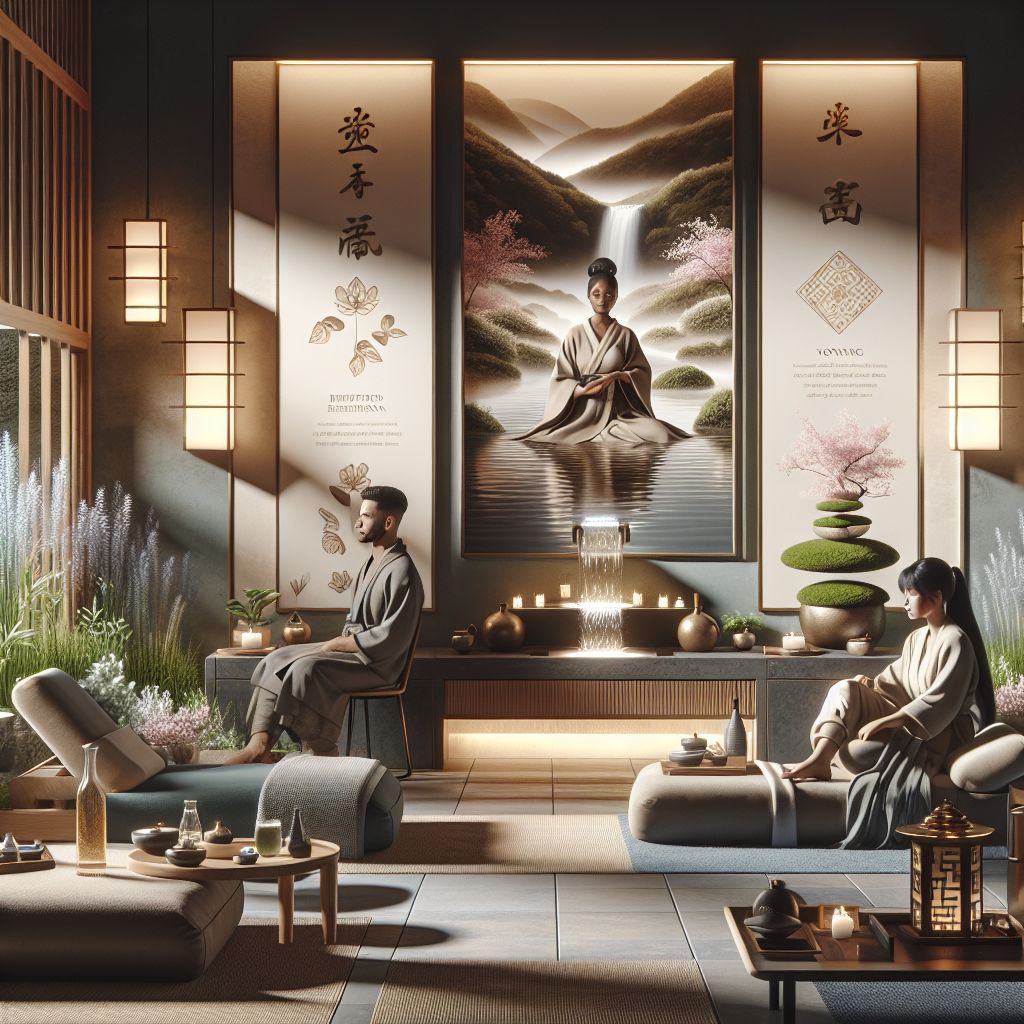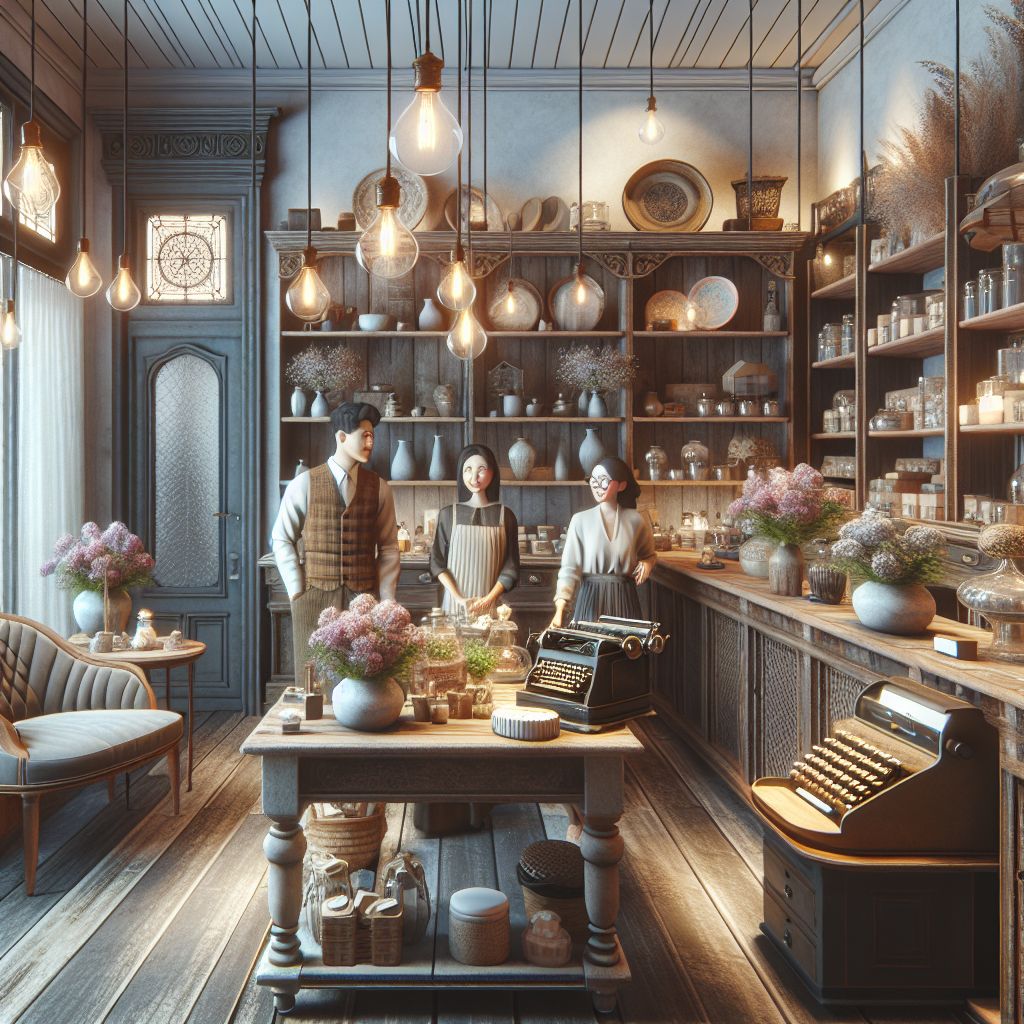
Key Takeaways-
Discover spa relaxation techniques to create a serene wellness journey.
-
Learn about the historical roots and cultural significance of spa practices.
-
Embrace core techniques such as massage, hydrotherapy, and aromatherapy for tranquility.
-
Create a boutique ambiance at home with tips on sounds, lighting, and comfort essentials.
-
Understand the benefits of spa relaxation for both mental and physical health.
Embrace the Essence of Spa Relaxation
Imagine stepping into a space where the hustle of daily life fades away, and tranquility takes its place. That’s the magic of a spa experience. It’s not just about pampering–it’s about rejuvenating your mind, body, and soul. But what exactly makes a spa so restorative? Let’s dive in and explore.
Defining Spa Relaxation
Spa relaxation is a state of deep rest that supports the body’s natural healing processes. It’s achieved through various techniques that engage your senses, soothe your muscles, and calm your mind. From the moment you enter a spa, every detail is designed to take you on a journey to complete relaxation.
Historical Roots of Spa Culture
The concept of a spa has been around for centuries, with roots tracing back to the Roman era. Ancient civilizations recognized the therapeutic properties of water and relaxation practices. They built elaborate baths and retreats where people could unwind and restore their well-being. This tradition of holistic healing has evolved into the modern spa culture we know today.
Core Techniques for Ultimate Tranquility
At the heart of every spa experience are techniques honed over time to maximize relaxation. Let’s break down these core methods and understand why they’re so effective.
Massage: The Power of Touch
Massage therapy is one of the most well-known spa treatments, and for good reason. The power of touch can reduce stress hormones, relieve muscle tension, and improve circulation. Here’s how you can incorporate massage into your wellness routine:
-
Book a professional massage at a local spa to experience a range of techniques.
-
Use self-massage tools like foam rollers or massage balls to work on tight areas.
-
Exchange simple massage techniques with a partner for a relaxing evening activity.
Hydrotherapy: Water as a Healer
Water has been used for centuries to heal and rejuvenate. Hydrotherapy, which includes hot tubs, steam baths, and cold plunges, utilizes water’s properties to relax muscles and boost mental clarity. Here’s how to tap into water’s healing power:
-
Take a warm bath with Epsom salts to soothe aching muscles.
-
Alternate between hot and cold showers to invigorate your body and improve circulation.
-
Visit a spa with a hydrotherapy circuit to experience the full benefits of water therapy.
Aromatherapy: Scents for Serenity
Our sense of smell has a direct pathway to the brain’s limbic system, which governs emotions and memories. Aromatherapy harnesses this connection by using essential oils to promote relaxation and well-being. Lavender, for example, is widely known for its calming properties. To incorporate aromatherapy into your relaxation routine:
-
Use an essential oil diffuser with a few drops of your favorite calming scent.
-
Add essential oils to your bathwater for a fragrant soak.
-
Apply diluted essential oils to pulse points before bedtime for a restful sleep.
Guided Imagery: A Mental Escape
Guided imagery is a technique that involves visualizing a peaceful scene or setting to help reduce stress and promote relaxation. It can transport you to a serene beach or a quiet forest, all within the comfort of your own mind. To practice guided imagery:
-
Find a quiet space where you won’t be disturbed.
-
Close your eyes and take a few deep breaths to center yourself.
-
Imagine a place where you feel calm and happy, focusing on the sensory details.
Creating the Perfect Boutique Ambiance

Now, let’s talk about setting the stage for relaxation. A boutique spa ambiance is all about creating a personalized and intimate atmosphere that appeals to all your senses.
Ambient Sounds: Harmonies of Relaxation
Music and nature sounds can have a profound effect on our state of mind. Soft, ambient sounds or gentle music can help lower blood pressure and heart rate, guiding you into a more relaxed state. Consider these options:
-
Play a playlist of nature sounds, like rain or ocean waves, to create a calming background.
-
Choose instrumental music without lyrics to avoid distraction.
-
Consider the rhythm and tempo; slow, steady beats are more relaxing.
Visual Tranquility: Lighting and Decor
The visual elements of your space play a significant role in relaxation. Dim, warm lighting can help signal to your body that it’s time to wind down. To create a visually tranquil space:
-
Use dimmer switches or lamps with warm-toned bulbs to create a soft glow.
-
Decorate with calming colors like blues, greens, or neutral earth tones.
-
Incorporate elements of nature, such as plants or water features, to enhance the sense of calm.
Comfort Essentials: Plush Robes and Warm Towels
Physical comfort is key to relaxation. High-quality, plush robes and warm towels can make a significant difference in your spa experience. Here’s how to bring this luxury home:
-
Invest in a thick, soft robe that you’ll look forward to slipping into.
-
Warm your towels on a radiator or in the dryer for a few minutes before use.
-
Choose towels and robes made of natural, breathable fibers for the most comfort.
Calming Tips to Enhance Your Spa Experience
Beyond the treatments and ambiance, certain techniques can help deepen your relaxation. These are simple yet effective practices that anyone can do.
Breathing Techniques: The Role of Inhalation
Breathing is something we do all the time, yet we often overlook its power. Deep, intentional breathing can help reduce stress and bring about a sense of calm. Try this simple exercise:
-
Inhale slowly through your nose, counting to four.
-
Hold your breath for a count of seven.
-
Exhale completely through your mouth, counting to eight.
-
Repeat this cycle four times.
Mindfulness: Present Moment Awareness
Mindfulness is the practice of being fully present in the moment, without judgment. It’s about noticing your thoughts, feelings, and bodily sensations as they arise. To practice mindfulness, consider incorporating meditation with candle incorporation for an enhanced experience.
-
Find a comfortable seated position and focus on your breath.
-
When your mind wanders, gently bring your attention back to your breathing.
-
Start with a few minutes a day and gradually increase the time.
Herbal Teas: Sipping Your Way to Peace
Herbal teas are not only warming and comforting but also have properties that can aid relaxation. Chamomile, for instance, is known for its soothing effects. Here are some teas to try:
-
Chamomile tea for its calming qualities.
-
Lavender tea to reduce stress and promote sleep.
-
Peppermint tea to ease digestion and relax the body.
Benefits of Spa Relaxation for the Mind and Body
Engaging in spa relaxation techniques isn’t just a luxury; it’s a vital part of maintaining overall health. Let’s look at some of the benefits these practices can offer.
Mental Health Advantages: Stress Reduction
Regular relaxation practices can lead to significant reductions in stress levels. This, in turn, can improve mood, enhance focus, and reduce the risk of stress-related illnesses. Most importantly, these techniques teach you how to manage stress in a healthy way. Discover more about the therapeutic benefits of candles in stress management and relaxation.
Regular relaxation practices can lead to significant reductions in stress levels. This, in turn, can improve mood, enhance focus, and reduce the risk of stress-related illnesses. Most importantly, these techniques teach you how to manage stress in a healthy way.
Physical Health Rewards: Improved Circulation and Detoxification
Spa relaxation doesn’t just ease the mind; it also has profound effects on the body. Techniques like massage and hydrotherapy improve blood flow, which can lower blood pressure and help the body detoxify naturally. This leads to better overall health and can even support the immune system.
Long-Term Impacts: Better Sleep and Vitality
One of the most cherished benefits of spa relaxation is the improvement in sleep quality. A relaxed body and mind can drift into deeper, more restorative sleep. This leads to increased energy levels and vitality during your waking hours, making you more productive and lively.
Frequently Asked Questions (FAQ)
When it comes to spa relaxation techniques, questions abound. I’ve compiled the most common inquiries to provide you with clear, concise answers.
What Is the Best Way to Prepare for a Spa Day?
To make the most of your spa day, plan ahead. Ensure you’re well-hydrated, eat a light meal, and arrive early to acclimate to the serene environment. Bring comfortable clothing and leave distractions behind so you can fully immerse yourself in the experience.
Can Spa Treatments Alleviate Anxiety?
Absolutely. Spa treatments, especially those that incorporate mindfulness and aromatherapy, can help reduce the symptoms of anxiety. They promote relaxation of the nervous system, which can help ease the mind and reduce feelings of anxiousness.
For example, a study published in the Journal of Clinical Psychiatry found that massage therapy can lead to significant reductions in anxiety and depression levels.
How Can Aromatherapy Enhance Spa Relaxation?
Aromatherapy enhances spa relaxation by engaging the olfactory system to influence mood and emotions. Using specific scents, such as lavender for calmness or peppermint for rejuvenation, can tailor the spa experience to your needs and preferences.
What Are the Benefits of Incorporating Sound into Relaxation Techniques?
Sound can profoundly affect our emotional and physical state. Gentle, rhythmic sounds can slow the pulse and heart rate, lower blood pressure, and decrease stress hormones. This auditory stimulation helps facilitate a meditative state, conducive to deep relaxation.
Is There a Specific Type of Tea That Is Most Beneficial for Relaxation?
While many herbal teas have relaxing properties, chamomile is often regarded as the most effective for promoting calm and aiding sleep. Its mild sedative effects can help soothe the nervous system and relax tense muscles.
Incorporating these spa relaxation techniques into your routine is more than a treat; it’s an investment in your well-being. And when it comes to aromatherapy, there’s nothing quite like the exquisite fragrances from Brogsdale Candles. Their hand-poured, scented candles are the perfect addition to any relaxation practice, turning your space into a spa-like sanctuary.